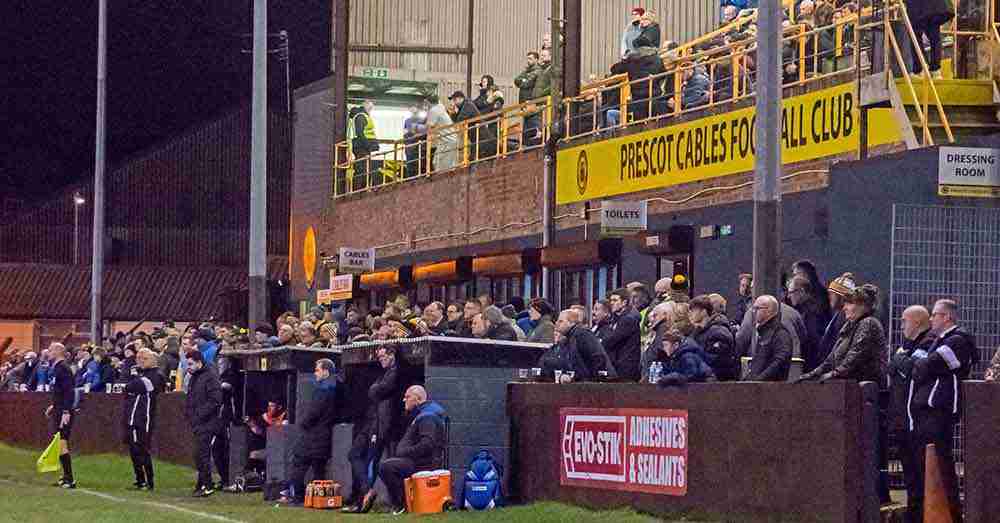So, here we are again, with the IP Truck Parts Stadium hosting a derby match between the fourth oldest Senior club in the Liverpool City Region and the youngest. Prescot Cables and City of Liverpool are very different types of football club; Cables are, in many ways a “traditional” non-league outfit, while this afternoon’s visitors have taken a different, marketing-led approach. But both are fan-owned clubs, seeking to represent and serve their local communities.
With this in mind, I’ve been reading the recently-published ‘Fan Led Review of Football Governance”. Such is my dedication to you, dear reader, allied with my lifetime of involvement in the game and the fact that I’m a massive nerd. I even made a small contribution to the Review; I completed the online survey; my response is one of the 3% of those included contributed by supporters of “other teams”.
That’s the kicker for clubs at our level; perhaps inevitably, our Leagues and clubs are a bit of an afterthought. Most of the main recommendations would, if adopted in full, focus on the top five tiers of English football. But, there’s still things in the report to offer hope to community football clubs lower down the pyramid.
The biggest is the recommendation that “The FA should scrap its current formula for distributing revenue it generates. The FA should have more flexibility to redistribute revenues as it sees fit, based on its assessment of where funding is most needed in the game.” This could see FA Cup prize money restored to pre-pandemic levels, or increased funding for improved facilities. It’s almost certain to lead to expansions of projects which increase the number of people playing the game, such as the Grow the Game fund for setting up new teams which is run by the Football Foundation.
Another positive is the recognition that football clubs occupy a unique place within the community and should therefore be subject to certain protections. These include “supporter vetoes” in respect of changes to key elements of a club’s identity, such as its name, colours and badge. The report also calls for moves to protect grounds, through two recommendations which would definitely help to safeguard clubs at our level and below. These are:
“34. The government should amend the National Planning Policy Framework to impose requirements on developers of an existing football stadium to provide new equivalent or better facilities in the same local area before any development work is started.
“35. The government should explore the viability of introducing new security of tenure property rights for clubs where the club does not own the stadium in which it plays.”
Given that most clubs outside the professional game (and some further up the food chain) don’t own the freeholds of their grounds, these are a serious effort to prevent other clubs from being forced out of their homes, as Whyteleafe and Abingdon Town were after Singapore-based Irama Sports bought the grounds on which they had played. Oddly, Irama’s website says the business is “Powered by Ian Rush” although the former Liverpool man has sought to distance himself from the eviction of long-standing football clubs such as Abingdon, who should have celebrated their 150th anniversary this season.
Fundamentally, the biggest shift that might happen should the Review be adopted is that The FA would cease to be English football’s “policeman”. It would still manage everything that happened on the pitch – so would continue to bank fines and admin fees from clubs in the top eight levels of the game – but would no longer have to worry about the financial well-being of its members. That would become the job of the putative Independent Regulator.
Predictably, the Premier League and some of its clubs have railed against the recommendations and it remains to be seen whether the measures will make it into law without being significantly watered down. But the review, in conjunction with the rise of fan-owned clubs including AFC Wimbledon, Enfield Town, Hendon, FC United of Manchester, Prescot Cables, City of Liverpool and many more does hint at one very important thing; change is coming to the Beautiful Game.
